Bereavement is so hard to deal with, but this quote really struck me.


Counselling in London or online
For one-to-one therapy for scapegoating, sibling abuse, bereavement, anxiety and depression
Bereavement is so hard to deal with, but this quote really struck me.

How are you keeping your loved ones alive?
Do you have people to talk to about them?
Talking to a counsellor can be a good place to start.
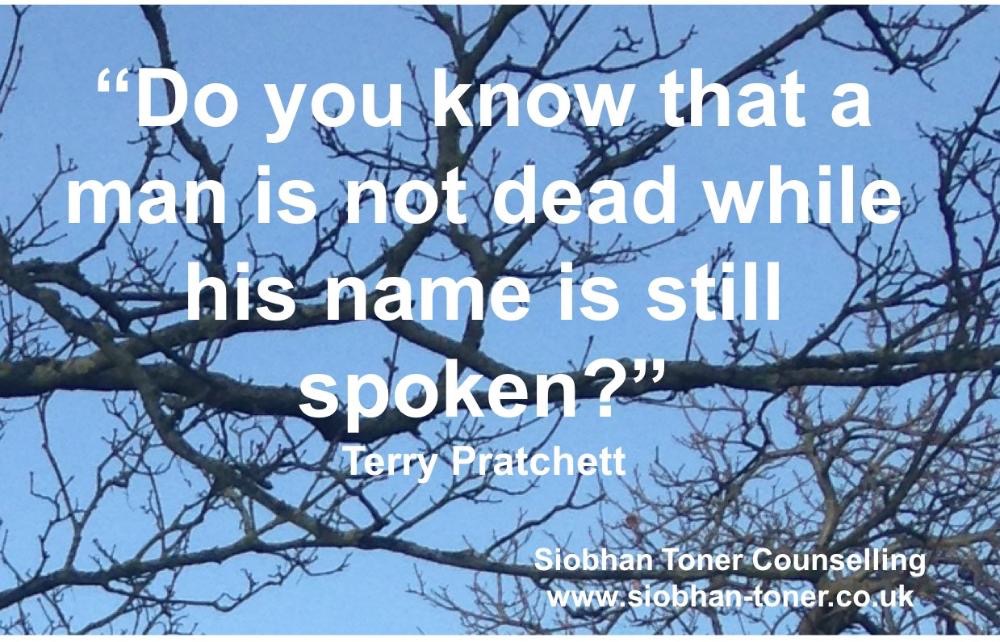

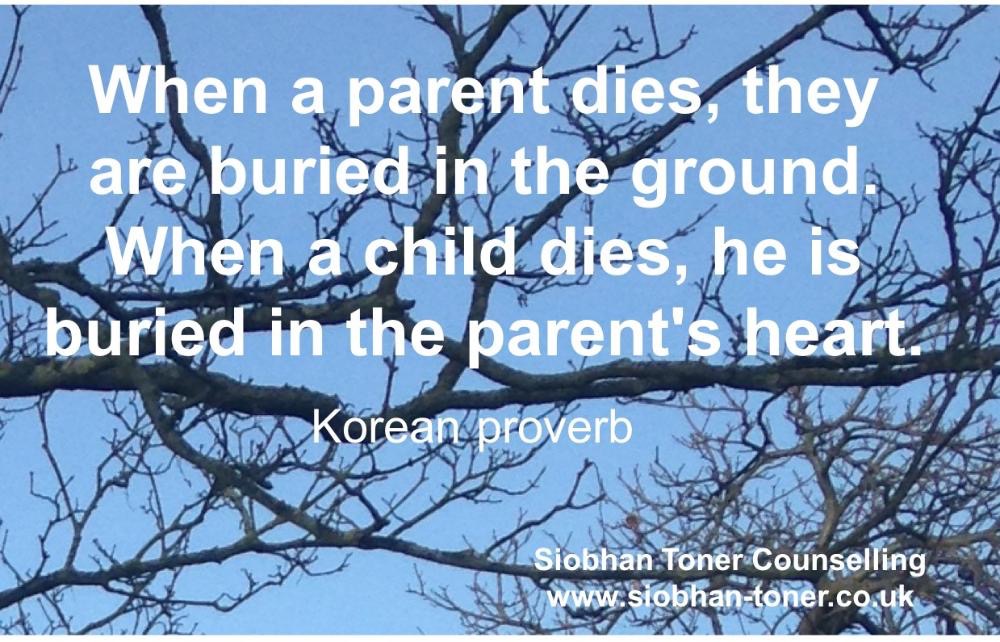
There are many different types of bereavement, the losses that we feel grief over are more than just when people we care about die.
Sometimes people leave us. This can be family, for example when a parent or sibling leaves the family home we can be left feeling abandoned. Our friendship groups may break apart, this is very noticeable in school but it can happen at any age. We may separate with romantic partners and feel a great lose due to that.
Other types of loses can also be incredibly hard to cope with. The loss of a home – this can be due to poverty, breakdown of relationships or a secondary bereavement when a loved one dies.
The loss of innocence can be very traumatic if it comes through abuse. This can also link to being a victim of other types of crimes like a mugging or burglary, where we can loose a sense of safety in our surrounding.
The loss of a job through redundancy can be very upsetting as it can challenge our sense of self, our purpose in the world and our self esteem.
The loss of health, having to adjust to a future without the health we may have taken for granted up to then.
All these are examples of loss and bereavement, all these losses can have long term psychological impacts and we may grieve for what has been lost or the future we thought we were going to have.
What losses have you experienced?
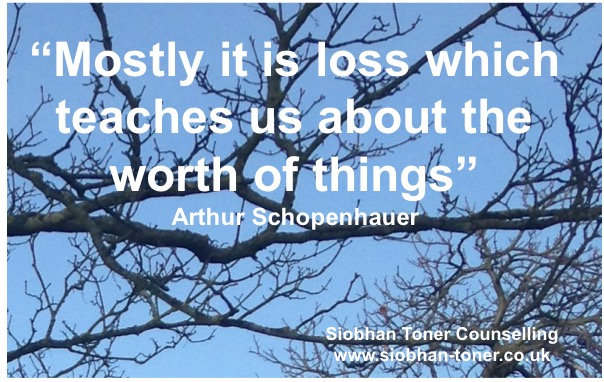
Are you finding the thought of Christmas day difficult because you are going to be spending it alone?
For years on Twitter there is a hashtag #joinin which was started by the comedian Sarah Millican . It was aimed aimed specifically at people who will be alone to give them people to talk to on Christmas day who are in the same situation. She said last year she was stepping down from it but hoped the hashtag would continue. With the demise of Twitters user base and rise of other platforms like BlueSky and Threads I hope the community that needs to find each other can do that this year.
Social media can be a great way to connect such as the twitter hashtag above, but it can also be something that makes us unhappy. This article has an interesting take on how Facebook lurking just makes us more dissatisfied if we believe everyone else is having a much better time than us. If you can’t use it to connect with people, how about having a break from it on Christmas day so you don’t put pressure on yourself on what it is supposed to be?
I wish you all the best over the next few days and hope you find some peace and joy, whatever your current circumstance.
There is a lot of celebrating going on around us at this time of year, but what if you aren’t part of that?
There are many reasons that you may be finding the festivities hard to cope with. One of those is bereavement, either a recent one or one that happened at this time of year in the past. Cruse have put together the graphic at the bottom of the page which you may find useful.
But there are other reasons; you may be suffering from an illness that makes it hard to feel like celebrating. This could be a mental health illness or one that gives you physical pain.
You might be estranged from family members and all the talk of family gatherings make it hard for you to join in the happiness because of your own emotions.
Your children may not be spending Christmas with you as they are with their other parent or your family is in another country.
You may be lonely and feel you don’t have anyone to spend the holiday with.
There are always organisations open to offer you crisis help if you need it, the most well know is the Samaritans who are there to talk if you need it.
Maybe what you need is to plan to change something longer term and are thinking about therapy. This might be the time to initiate that, please feel free to contact me if that is the case.
To all those people who are finding it tough this year I hope you find some solace and find some peace despite what is going on for you.
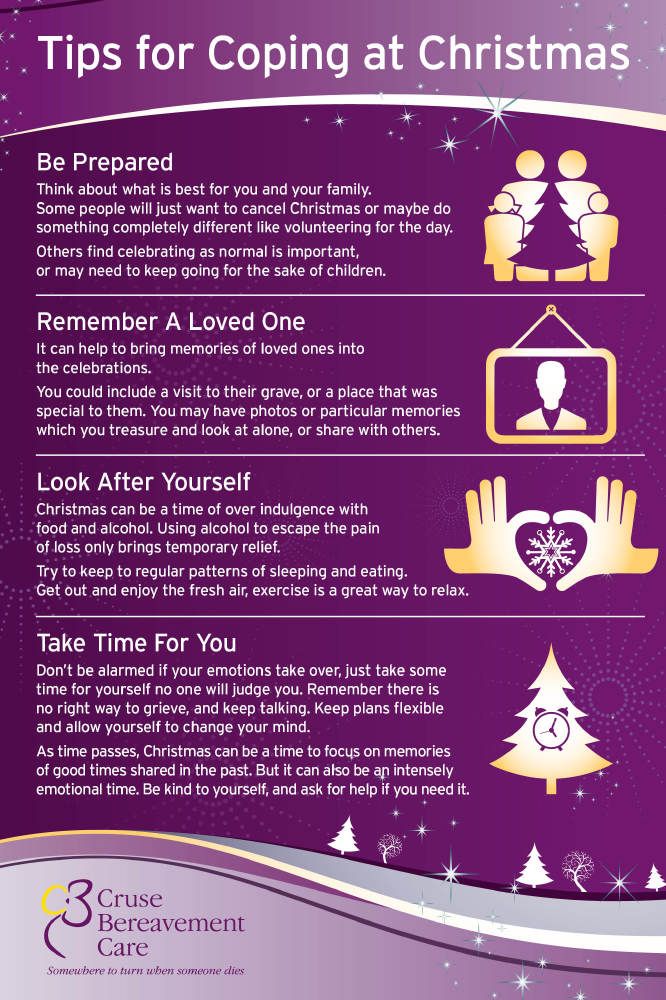
There are so many terrible headlines at the moment about violence and murder, not just in London but across the country.
What they don’t really show is the impact of these crimes on extended families and friends. Loosing someone you know by a murder is devastating, even if it’s an acquaintance. It is so much worse for the families and loved ones.
How do you explain it to children and young people. How do you support them through the ongoing process of trying to make sense of something so senseless? How do you support them when you need support yourself?
There is a fantastic organisation, Winstons Wish which supports bereaved children and their families. They also have a whole section dedicated to resources when the bereavement is due to murder or manslaughter.
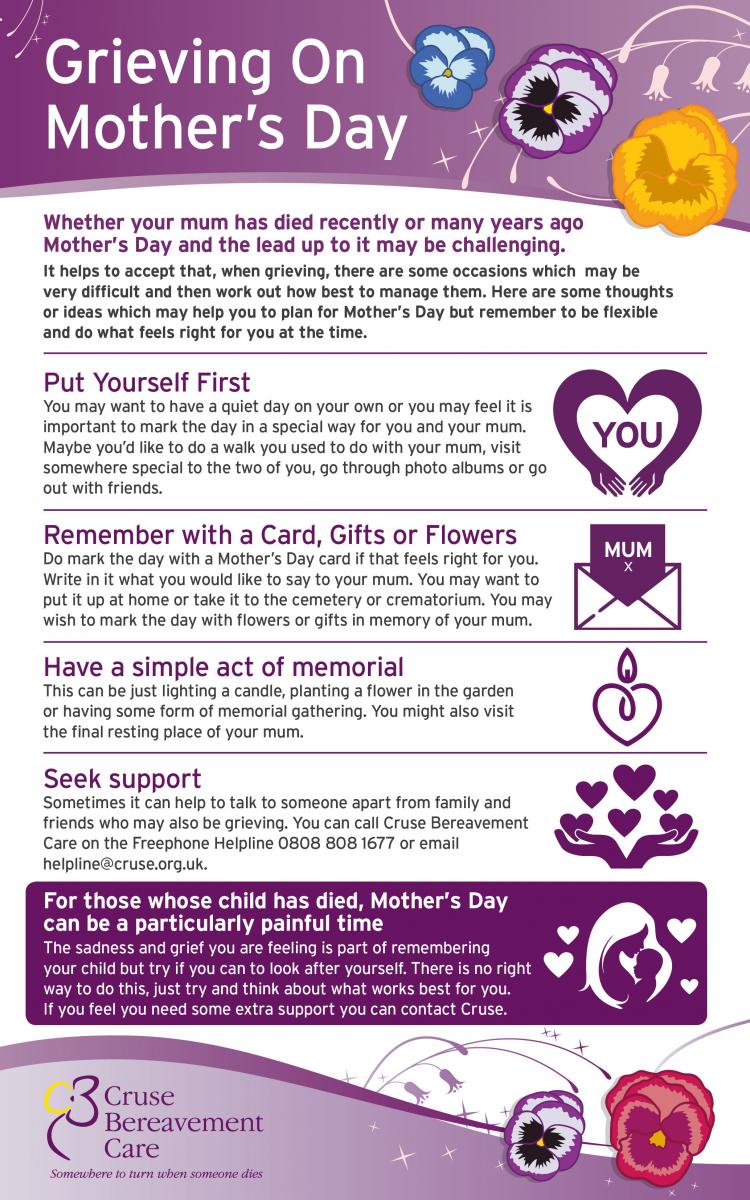
There has been a lot of media attention lately on the subject of bereaved parents and ways to support them, but the focus has been on those who are parents of babies or children. There is another group of parents not getting as much acknowledgement, those who children are adults.
It doesn’t make it any easier to lose a child later in life, it is still as painful and bewildering for this group of parents. They may have other considerations to deal with as well, for example, a grandchild who have lost their parent. This may mean they put their feelings down to “stay strong” and support their grandchildren emotionally. They may even have to end up being the primary caregiver depending on the situation that the family is in.
There may also be a lot of history to be processed and they run the risk of getting stuck into “what ifs”. What if I did this differently, or that. The weight of their history can become overwhelming.
In many ways, it is the same as anyone who is dealing with a bereavement but you have to particularly respect to the fact they have lost their child. What is going to be really damaging to them would be “well at least you had x number of years with them”.
Don’t assume that your bereavements are anything like theirs. Thankfully most parents are not in the position where they outlive their children. If you have been through it, the chances are you already know from your own experience all of these things.
The best things to keep in mind is one simple guideline: never assume, just be there.
Instead of statements like “You must be/you must feel…” simply ask how they are. They will tell you what they are able to say at the time. It may not be much. Never say things like “you will get over it” or “you will never get over it”.
You may not see their grief, but don’t assume it isn’t there. While you may also be grieving, don’t assume they want to hear about it. Having to try and support you is not necessarily going to be something they can cope with.
Your opinions are not required unless asked for. While you may think it will be helpful to tell the person how the funeral should be, or what to do about the grandchild or any other topic, don’t assume they are needed. Offering yourself as a sounding board for the person to talk through all the pros and cons of the many decisions they have to make without judgment will be much more helpful.
They may not be able to talk about the child they have lost. Don’t assume this means they will never want to talk, or that they don’t want company now. The best support people can give each other is just being with them. Being present, even if you are in silence or talking about trivial things tells them they are not alone and that they are cared for.
They may not be behaving how you imagine you would in the same situation. They still have to eat, so maybe shopping and cooking or doing the cleaning and laundry as normal. A lot of these things are necessary to continue functioning and there is also comfort in them. There is a reason why people bring food to bereaved people, it’s because it’s a useful practical way to help without demanding anything of them.
Offering help can be tricky. Being specific in your offer is probably the best, e.g. “I’m going to come and do your ironing today” or “I’ve made you a pie. I will put it in the freezer for when you need it”. However, be aware that what you are offering may not be required. Make sure the person has a way to refuse it and don’t be offended if they do. For example, if you say, “I will come and spend tomorrow afternoon with you as it’s the only time I have free” they may have plans already such as visiting the undertakers. This is going to put them in an uncomfortable position.
A really useful thing to do to help is telling other people what’s happened. Let the bereaved person know you are willing to do that and ask who you can ring. Think about friends you have in common. This means they are not in the position of having to repeat what’s happened to lots of people.
While the subject of money can be sensitive, don’t assume it is not a worry. There may not be any money put by for a funeral so the costs will be unexpected and very high. Is there any way you can help with this? It’s better to offer sensitively and not be needed that to keep quiet and leave the person to worry about this as well.
And finally, don’t assume that someone else is taking care of them and giving them the support they need when you are not. Never assume this, if you want to support them, be with them.